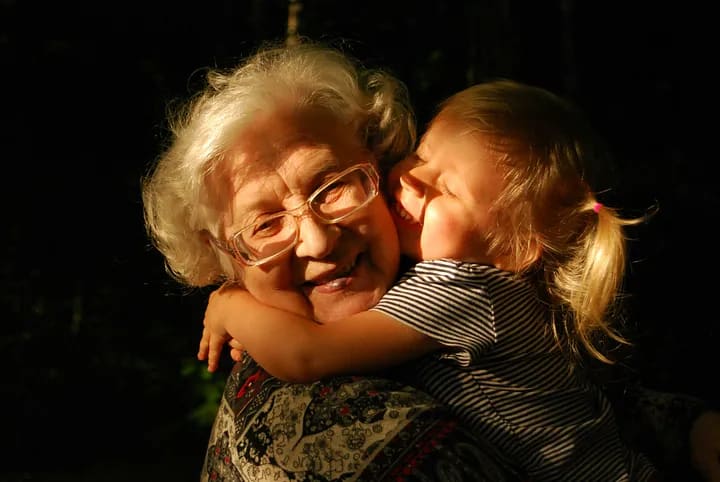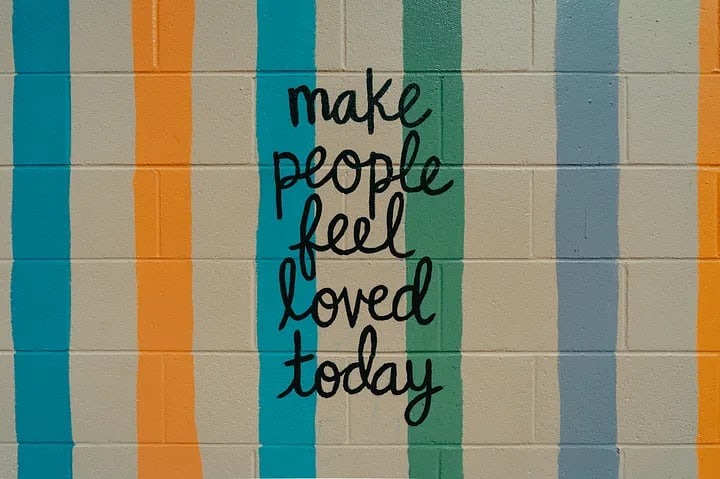A Tale of Success and Emptiness
Lessons learned from “the Class”

Danny Rossi woke up alone. Not merely alone in bed but feeling a pervasive emptiness in his entire life. How could this be? he asked himself. Here I am in my new — Fifth Avenue duplex overlooking Central Park. In a minute a butler is going to walk through that door with my breakfast on a silver tray. He’ll also be bringing this morning’s mail, which will contain invitations to at least a dozen parties all over the world. And I suddenly feel unhappy. Unhappy? What a ridiculous thought… Unhappy? There isn’t an orchestra in the world that wouldn’t die to have me as a soloist… So why do I feel worse than I ever did when I was stuck in that lousy little practice room in my parents’ cellar?
When I was young, I stumbled upon a novel that would profoundly shape my understanding of life. The Class, by Erich Segal, followed the story of five Harvard students from the class of 1958. Each of them excelling in their respective fields and achieving their dreams.
This is what most of us want, don’t we? This is what will make us happy, won’t it? Achieving our dreams…
I saw these characters struggle with their lives, despite, no, especially after they achieve their dreams. The novel painted a vivid image of success and emptiness that resonates with me till this day. They showed me exactly what happiness isn't.
The Illusion of Success
Danny Rossi (quoted above), a successful musician, stood before me as a testament to the illusion of success. Despite his opulent lifestyle, his life is marred by a deep sense of emptiness and loneliness. Thinking back on his life, I am reminded of Jim Carrey’s words:
“I Think Everybody Should Get Rich and Famous So They Can See That That’s Not the Answer”
Don’t misunderstand me, I don’t think, nor mean, that having or achieving one's dreams of passion are the disease, that symptomize emptiness and loneliness. I merely iterate what Daniel Rossi taught me:
Fulfillment cannot be found in luxury and fame.
The Price of Power
George Keller, a protagonist in the book, starts off as an immigrant from a war-torn land and ascends the bureaucratic ladder to become one of the most powerful men in the U.S., sharing an office with Henry Kissinger. Despite his meteoric rise, Keller’s story ends in tragedy. George Keller was incidentally the first person to ever bring me face to face with the horrors of suicide. His suicide note pleads,
when you write about me in that diary of yours — never say that I’m a lucky man.
His heart-wrenching plea rattled something inside of me the day I read it. I didn’t know at that time that something was starting to stir up inside of me, a deep existential crisis that would later develop into a case of depression. However, I remember putting the book down, taking a moment for myself, thinking about George Keller. He taught me:
Power and prestige are not the symbols of happiness.
Power, Prestige, Luxury, Fame… None of it…
What I learned about Finding Peace
At their 25th reunion, the class celebrates Andrew Eliot, a man of no extraordinary achievements by conventional standards. Eliot’s greatest accomplishment is his unwavering friendship and kindness. He is a friend to the renowned musician, the powerful bureaucrat, and the others around him. Despite not having the accolades of his peers, Eliot is voted the best man in the class.
This recognition does not stem from a single feat, but rather from a lifetime of an empathetic existence. It taught me that the true measure of a person’s worth lies not in their deemed ‘societal successes’, but in their capacity for kindness, empathy, and genuine human connection.
Eliot’s story is one that everyone of us witnesses at some point in our lives. There’s that one person that we find a beacon of hope, optimism, and kindness. My contribution to this world, would be to be kind to that person in return, and hopefully, be that person to someone.
As I grew, I realized that it didn’t matter if they even applauded Andrew that day. What matters is his realization of what had transpired through his life and what it meant. To be that kind, empathetic, and compassionate person, to live it, and to realize it, is what makes one feel true happiness.
To exist beyond yourself

The Class resonated with me as a profound commentary on life. It moved me deeply, shifting something inside me. It taught me that true fulfillment is found not in wealth or power, but in the richness of our relationships and the authenticity of our connections with others.
Through my life, grappling with major depression and anxiety, I’ve come to understand the importance of these lessons. The emptiness that Rossi and Keller experienced is something I have faced personally. Despite outward success, I often found myself feeling hollow, a void that success could not fill.
Eliot offered hope to me. He taught me that we can find meaning and fulfillment through our connections with others, through acts of kindness and by being a true friend. Although it might sound Cliche, sometimes we need to be remined of the most basic narratives of life. This realization has guided me in my personal and professional life, reminding me time and time again to value relationships over achievements, peace over pursuit, morals over matter, and life over anything.
What I learned of Success
As we traverse through our own lives, it’s important to remember that success is not defined by our titles or possessions. True success lies in our ability to connect with others, to offer support, and to be a source of comfort and kindness. The stories in The Class critically reminded me that the constant pursuit of material wealth and power often leads to emptiness, but the pursuit of genuine human connection can lead to a life of true fulfillment.
In a world that constantly pushes us towards achieving more, we need to remember the quiet, unassuming heroes like Andrew. They teach us that at the end of the day, it is our relationships that define us and bring us lasting happiness.

Heroes of our own Stories
Reflecting on The Class, I realize we are all authors of our own lives. Yet, we often neglect to pen the most meaningful chapters. We become entranced by society’s narrative of success and overlook the simple, most important moments of connection and kindness. This book taught me the importance of these moments and the true essence of fulfillment.
As we continue to write our own stories, I hope we remember to prioritize what truly matters: the people we love, the friendships we cherish, and the kindness we extend to others.
Let us embrace our own stories with authenticity, compassion, and a commitment to genuine human connection. It is through these narratives that we find our true selves and the fulfillment we seek.
About the Creator
Enjoyed the story? Support the Creator.
Subscribe for free to receive all their stories in your feed. You could also pledge your support or give them a one-off tip, letting them know you appreciate their work.





Comments (1)
A well said story.